Fans of classic video game tracks may find themselves astounded to realize that the songs they thought they knew... could sound so radically different.
Rearranged and reimagined for string quartet by composers Dren McDonald (Ghost Recon Commander, Ravenwood Fair) and Jason Poss (The Lord of the Rings film trilogy, World of Warcraft: Wrath of the Lich King) comes a brand new, completely crowdfunded tribute album: The String Arcade.
What is 'The String Arcade'?
"It was a fun experiment. It was a challenge that was a bit of a test to see if this idea had legs to stand on."
-- Dren McDonald, on rearranging his own music
All profits from the album are donated to the Alameda Music Project, a tuition-free after school program that provides intensive classical music instruction to under-served children in grades K-5.
Dren McDonald was kind enough to answer a few questions I had for him after I'd gotten a chance to have a listen to the new album.
(To read more about this album, see: Video Game Tribute Album 'The String Arcade' Now Available as Digital Download and CD)
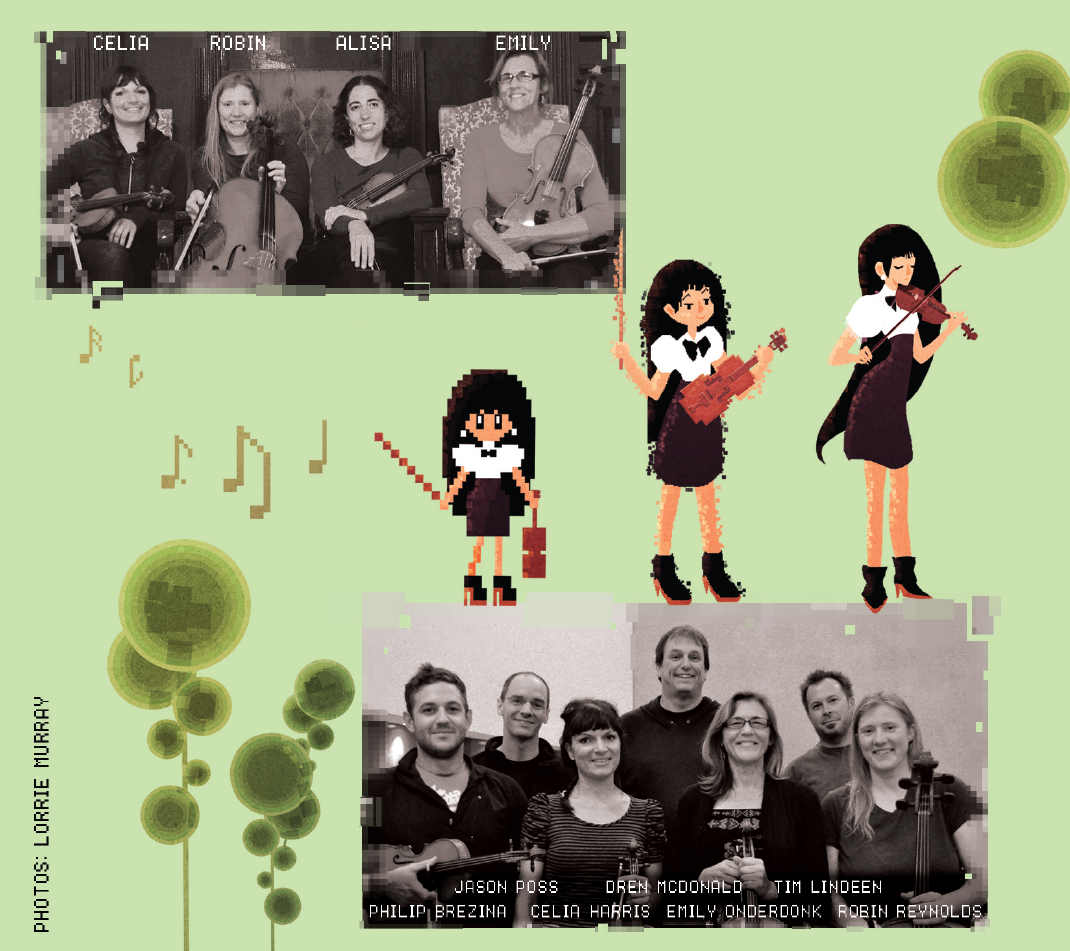
Inspirations
With YouTube littered with music covers galore, it's no news that video game music strikes a chord in most musicians - but rarely does it ever extend to changing and rearranging the original score. Furthermore, The String Arcade is far from a collection of video games' Greatest Hits, but rather an eclectic (although thematically sound) collection from games both indie and triple-A.
So it begs the question - why these games in particular, and why these particular pieces of music? Some of them were Dren McDonald's own original composition, so how about the others?
"I had some criteria for the music we covered.
The songs music that had previously been represented by chips (Galaga, Zelda) where perfect in that regard. Music that had originally been represented by traditional instruments proved to be harder to re-interpret, or at least, not quite as fun, considering how 'loose' we approached the arrangements."
- It had to be a game that I had enjoyed, or connected with
- It had to be music that I connected with
- It had to be music that would be 'elastic' enough to respond well to the re-arranging that Jason and I inflicted upon them.
As for using his own music, I had to wonder - what would it be like having to take what you've already produced and then slice and dice it into something else? Could it feel akin to dissecting a favorite child?
"Oh no, nothing like that! It was a fun experiment. It was a challenge that was a bit of a test to see if this idea had legs to stand on...if I'd hadn't been successful with the re-arrangements of my own music, I may not have moved ahead with the rest of the project!"
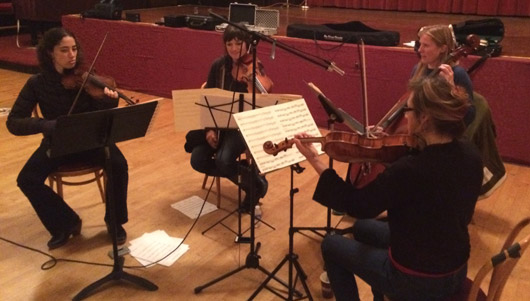
As a Kickstarter project, going through the process strictly for charity can be a hard decision to make - and the makers of The String Arcade had decided that this was not going to be a for-profit venture.
The String Arcade Kickstarter mentions that the funds were going towards finishing and mastering the recordings, but did any of that money go to the musicians, sound engineers, etc. or were they doing it as a charity obligation as well?
"The Kickstarter money went to the musicians, the engineer, the venue rental, the manufacturing, postage etc. So everyone (except Jason and I and John Mayfield, our mastering engineer) were paid for their work.
It would appear to be hypocritical to ask musicians to work for free while we are trying to raise money for a music program. If the kids in the program grew up to be musicians, I wouldn't want them to enter a world where musicians are expected to work for free, so I don't want to contribute to that stereotype.
The idea of this recording was fused with the fundraising idea from the beginning. I knew that AMP was trying to get their program off of the ground by fall of 2014, so I wanted to do what I could to help move that along."
And why this particular charity?
"The pilot school for the program is the same school that my kids attend, which is just a block away. It's a community effort, and it's one that I believe in. It's based on the El Sistema program, which originated in Venezuela about 40 years ago.
The program was designed to get children involved in music to not only help them learn music, but to also become invested in a social community project which would also help them stay involved in school. With so many arts programs getting cut from educational budgets, I think it's important to allow access to music lessons, for no cost, for any child who is interested. Makes for a better community."
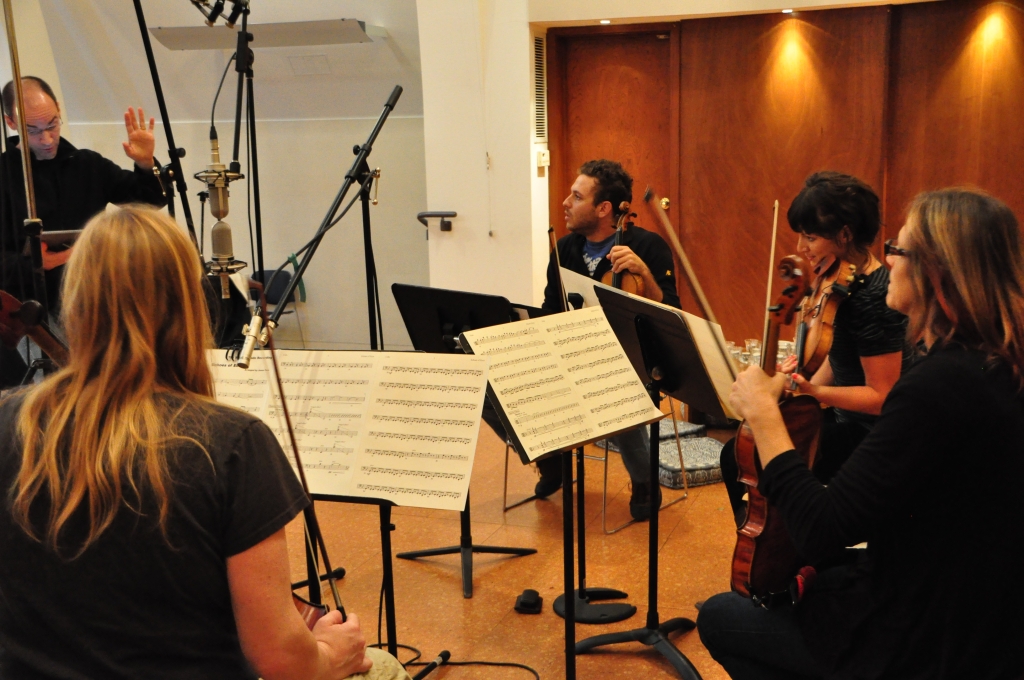
As for Dren himself, he has worked and composed music for video games before (some of which are on the album, in fact), and it is a lifetime of interest in both music and video games that has landed him on a career path where The String Arcade can be made a reality:
"I had been playing music since the age of 5, and then kind of seriously since age 12. I was in bands, had a record label and very involved in the indie music industry for many years, up until the music industry really started to change in the early to mid 2000's. At that point I was tired of being in the music industry, feeling a bit like I'd painted myself into a corner with my career. So I wanted to try something else and I had some friends in the game industry already. So I consulted with them about working in games, and they were really helpful.
"I had always been excited about games, ever since I saw Space Invaders in an arcade, and I had a 2600, an NES, a Sega Genesis, etc... and I don't know why I never thought about working in games as a musician... just never occurred to me... for a long time! But somehow I convinced enough people into letting me write music and make noises for their games. It's a lot of good fun. Hard work, but a lot of fun."
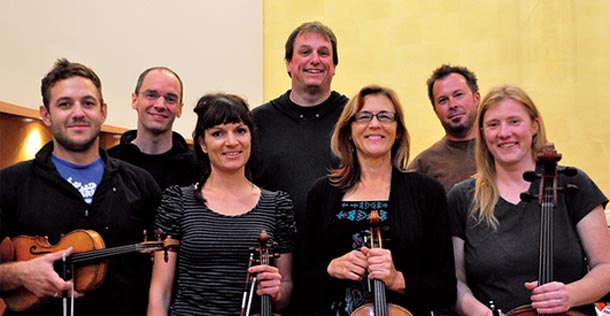
The big question remains: as a Kickstarter project (and a charity album), will this be the one and only time we hear anything like video game music made for string quartet, or will other tracks also received "the string treatment" in the future?
"I've received this question a few times now, and that makes me happy because it means that people would like to hear more! I don't think that I want to replicate the same type of release with the same type of arrangements but with different songs. But if another idea strikes me that seems to fall into this broad category of interesting game music covers, I'd probably follow up on it."
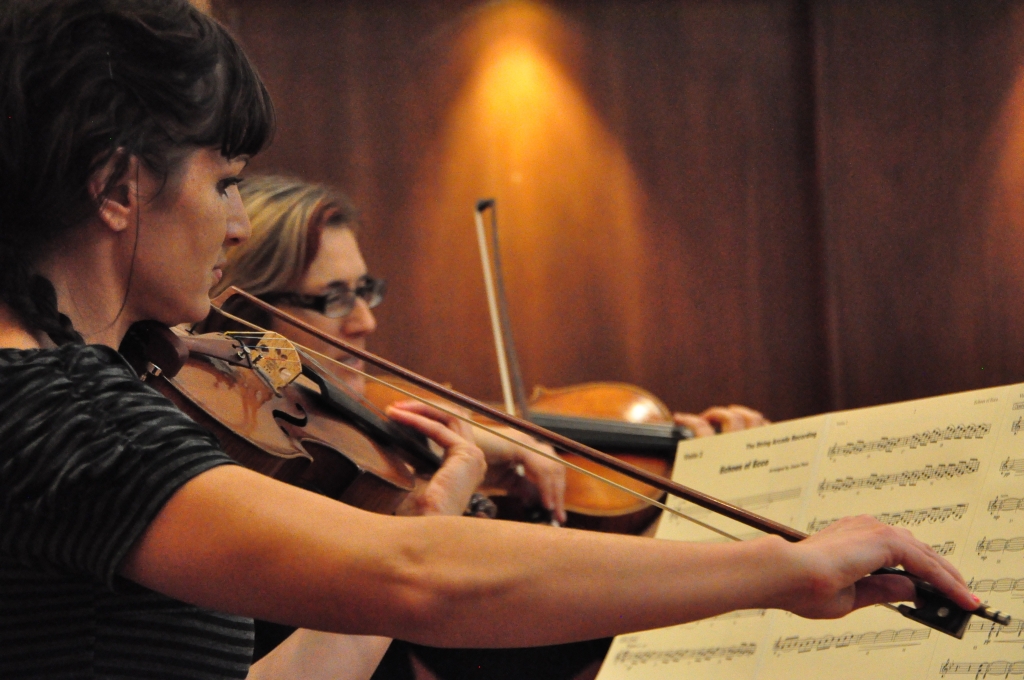
All of the original arrangements were performed by local Bay Area musicians, with a special appearance by the Boston-based Videri String Quartet. If you wish to purchase the album and support the Alameda Music Project charity, you can find it available for purchase on:
Many thanks to Dren for taking the time to answer these questions! If you're interested in some of my own thoughts on the album, you can check those out here.






Published: Mar 17, 2014 10:27 am